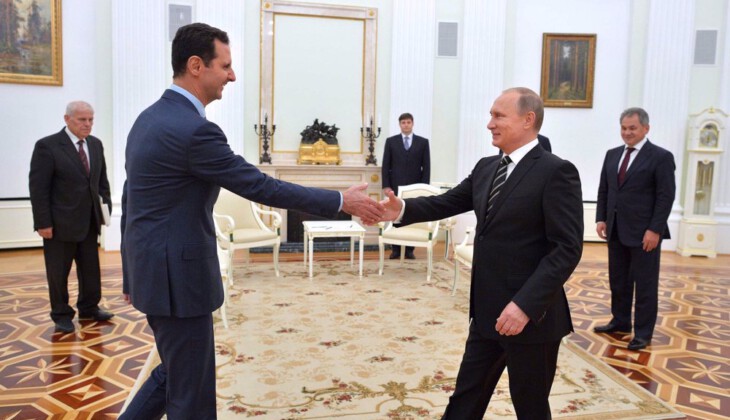Russia vetoes Western resolution on Syria aid for bypassing Damascus

Russia has vetoed a West-backed draft resolution that called for an extension of aid deliveries from the United Nations to Syria through Turkey without the consent of Damascus.
The vote held at the UN Security Council on Friday sought to extend cross-border aid to the terrorist-held northwestern province of Idlib by a year, bypassing the Syrian government.
“We regret that the efforts of the delegations of Ireland and Norway, the pen holders on the humanitarian dossier, didn’t find the best way of resolving the issue,” said Russia’s deputy envoy to the UN Dmitry Polyanskiy, arguing that the resolution was not in Syria’s interests.
Thirteen UN Security Council members backed the Western draft resolution, while Russia opposed it and China abstained from the vote.
The UN Security Council has been extending the Mechanism for Cross-Border Aid Delivery into Syria (CBM) since 2014.
Syrian President Bashar al-Assad’s government has repeatedly denounced the cross-border mechanism as a violation of Syria’s sovereignty and a tool to advance Western agendas in the country.
Moscow and Beijing have generally agreed, contending that the UN authorization violates Syria’s sovereignty and the aid to opposition-held territories should instead be routed from Damascus.
After vetoing the resolution, which was proposed by Norway and Ireland, Russia presented a competing resolution that proposed extending the aid by only six months.
China voted in favor of the proposal, while the US, Britain, and France cast their vetoes against it. The resolution thus failed to make headway after a double veto by two veto-yielding members.
Polyanskiy blasted the West’s “stubbornness” and asserted that the West-backed resolution “ignored the sovereignty of Damascus.
Comment
- Donald Trump is trying to impose a new world order.”
- Since the WWII, Europe has been a US Colony
- Trump is Following Washington national politics that were used prior to the WW2
- Trump’s Strategy about Venezuela is Based on James Monroe’s Doctrine
- “Somaliland”, A New US and Zionist regime project: A Unique and Remarkable Geographical Position of the Region
- Donald Trump is trying to impose a new world order.”
- Since the WWII, Europe has been a US Colony
- Trump is Following Washington national politics that were used prior to the WW2
- Trump’s Strategy about Venezuela is Based on James Monroe’s Doctrine
- “Somaliland”, A New US and Zionist regime project: A Unique and Remarkable Geographical Position of the Region
- Trump is Humiliating Europe: America’s Geopolitical Strategy has turned Violent
- video interview with Canadian author
- Trump Is After Reinfiltrating all the South American Countries
- Iraq: A New Power Geometry and the Future Challenges
- Donald Trump is a Complete Lunatic and a Narcissist
- We Do Not Wish to Transform Iraq into a Leverage for Targeting other Countries
- Donald Trump’s Public Support Has Reached its Minimum
- The Al-Shar regime is engaged in Killing the people of Syria instead of fighting Israel
- Donald Trump is trying to impose a new world order.”
- Since the WWII, Europe has been a US Colony
- Trump is Following Washington national politics that were used prior to the WW2
- Trump’s Strategy about Venezuela is Based on James Monroe’s Doctrine
- “Somaliland”, A New US and Zionist regime project: A Unique and Remarkable Geographical Position of the Region
- Trump is Humiliating Europe: America’s Geopolitical Strategy has turned Violent
- video interview with Canadian author
- Trump Is After Reinfiltrating all the South American Countries
- Iraq: A New Power Geometry and the Future Challenges
- Donald Trump is a Complete Lunatic and a Narcissist




